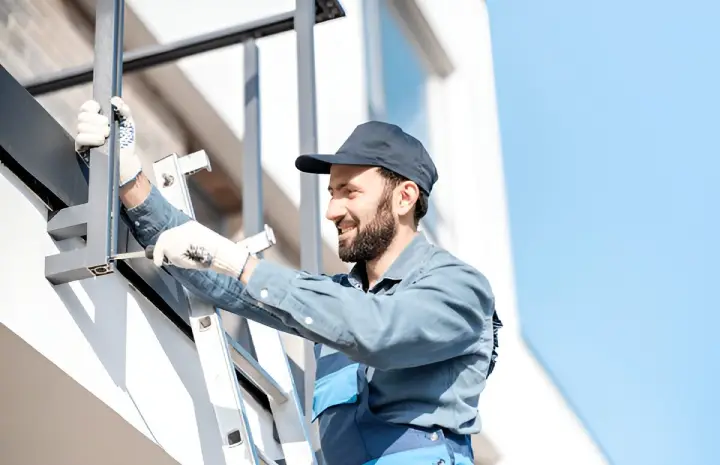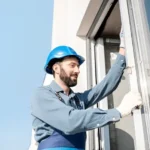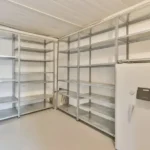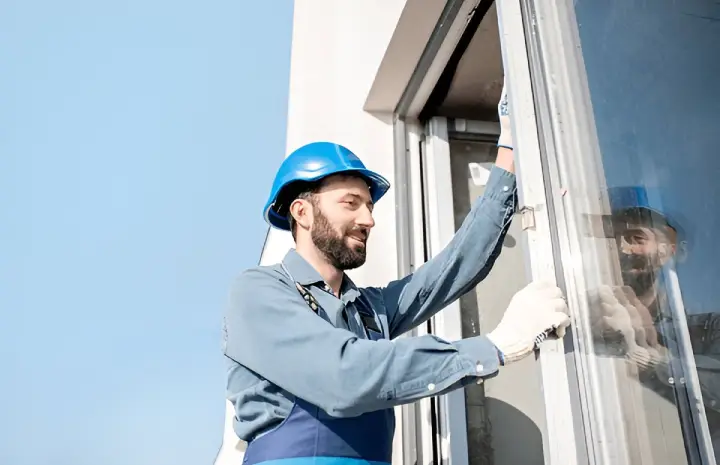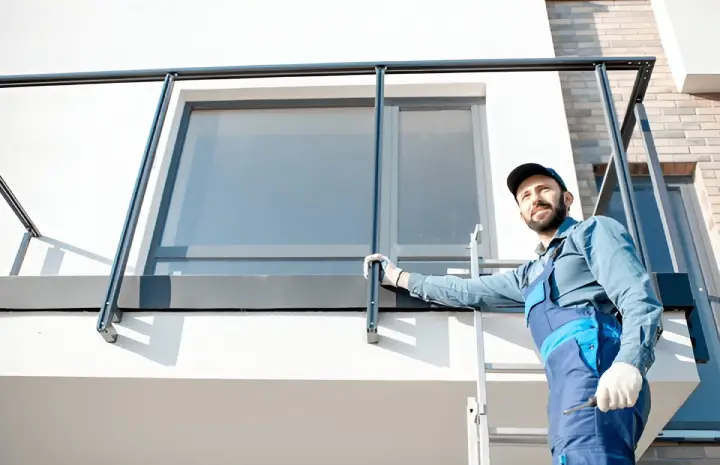Why Aluminium Balconies Outlast Traditional Balcony Materials
In the world of architecture and home improvement, balconies are more than just outdoor add-ons — they’re lifestyle spaces. From high-rise apartments overlooking Dubai Marina to family villas in Abu Dhabi, a well-built balcony enhances comfort, property value, and design appeal. But not all balconies are created equal. When it comes to long-term durability and style, Aluminium Balconies Installation clearly outperforms traditional materials like wood, steel, and wrought iron.
Let’s explore why aluminium balconies have become the preferred choice for builders, architects, and homeowners across the UAE — and why they’re engineered to last decades longer than conventional options.
1. The Shift Toward Modern, Low-Maintenance Materials
Modern construction in Dubai demands materials that are durable, lightweight, and weather-resistant. Traditional materials like steel and wood, while classic, require continuous upkeep. Aluminium, on the other hand, offers the same visual appeal with minimal maintenance — a major reason why Aluminium Balconies Installation is fast becoming the industry standard.
Today’s aluminium systems combine precision engineering with powder-coated finishes and thermal-break profiles that extend lifespan even under the UAE’s harshest weather. This balance of beauty and endurance has redefined what modern balconies can achieve.
2. Aluminium’s Superpower – Corrosion Resistance
Dubai’s coastal environment exposes buildings to humidity, salt air, and temperature extremes that easily corrode iron and steel. Even with regular repainting, rust eventually weakens those materials.
Aluminium, however, naturally forms an oxide layer that prevents corrosion. When powder-coated or anodized, this layer becomes even stronger — effectively sealing the surface against moisture and UV radiation.
That means no flaking paint, no rust streaks, and no structural weakening. The result: Aluminium Balconies Installation delivers flawless performance for years with just occasional cleaning.
3. Lightweight Strength That Doesn’t Compromise Safety
One of aluminium’s greatest advantages is its strength-to-weight ratio. It’s about one-third the weight of steel yet equally strong when engineered correctly. This makes it ideal for modern architecture where structural efficiency is key.
For high-rise projects, lighter balcony materials reduce load stress on the main structure — translating to better design flexibility and safer installations. Aluminium’s precision fabrication also ensures consistent strength across every railing, joint, and frame component.
4. Withstands the UAE’s Extreme Climate
Traditional balcony materials struggle under the UAE’s weather cycle — scorching summers, occasional rain, and airborne dust. Wood swells, cracks, or fades; steel rusts and loses shine. Aluminium, in contrast, is engineered for endurance.
Here’s why it performs better:
- Heat-resistant coatings prevent warping or discoloration.
- UV-stable powder coats keep finishes vibrant for years.
- Non-porous surfaces repel sand and moisture.
- Low thermal expansion ensures consistent alignment over time.
That’s why Aluminium Balconies Installation is the logical choice for Dubai’s skyline — where resilience meets design excellence.
5. Minimal Maintenance, Maximum Lifespan
Traditional balconies demand constant upkeep — sanding, sealing, painting, or rust removal. Aluminium requires almost none.
Routine maintenance simply involves:
- Occasional washing with mild detergent.
- Inspecting screws or joints annually.
- Recoating every 15–20 years if desired.
Because aluminium doesn’t absorb moisture or degrade with age, it maintains its original appearance longer than any competing material. For busy homeowners and commercial property managers, this translates to lower lifetime costs and hassle-free upkeep.
6. Aesthetic Versatility for Every Design
Aluminium may be practical, but it’s also stylish. Architects love it for its ability to adapt to diverse styles — from ultra-modern to Mediterranean.
Popular finish options include:
- Anodized silver for a polished, contemporary look.
- Matte black or charcoal for industrial chic.
- Wood-grain textures for natural warmth without maintenance.
- Custom RAL colours to match building facades.
Whether it’s a sleek glass-and-aluminium hybrid balcony or a decorative railing for villas, Aluminium Balconies Installation delivers limitless design freedom.
7. Eco-Friendly and 100 % Recyclable
Sustainability is no longer a luxury — it’s a necessity. Aluminium stands out as one of the most eco-friendly materials in modern construction. It’s 100 % recyclable without losing strength or quality, making it a preferred choice for green-building projects across the UAE.
Compared to steel or wood, aluminium production and recycling consume less energy, resulting in a smaller carbon footprint. For developers aiming to meet Dubai’s Green Building Regulations, aluminium is the material of the future.
8. Cost-Effectiveness Over Time
While the upfront cost of Aluminium Balconies Installation may be slightly higher than wood or mild steel, the long-term savings are substantial. Consider the ongoing costs of repainting, rust treatment, and repairs associated with traditional balconies — they easily outweigh aluminium’s one-time investment.
A professionally installed aluminium balcony can last 25 to 30 years with minimal maintenance, providing both economic and structural stability in the long run.
9. Fire-Safe and Structurally Reliable
Unlike wood, aluminium is non-combustible and doesn’t contribute to fire spread. This makes it a safer option for residential and commercial buildings. Additionally, aluminium frames maintain their structural integrity even under high temperatures, ensuring occupant safety in extreme situations.
In multi-story buildings, this added fire resistance provides peace of mind for both builders and residents.
10. Seamless Integration with Glass and Modern Materials
Aluminium’s adaptability makes it compatible with glass, stainless steel, or composite panels — materials commonly used in Dubai’s luxury properties.
A glass-and-aluminium balcony offers:
- Unobstructed panoramic views.
- Enhanced natural light flow.
- A clean, minimalist finish.
This combination is not just a design choice — it’s a lifestyle statement that defines modern living.
11. The Professional Installation Advantage
Even the best material needs expert hands. A professional Aluminium Balconies Installation ensures proper alignment, secure anchoring, and compliance with Dubai Municipality safety standards.
Qualified installers use precision tools and certified fittings to guarantee:
- Structural integrity under load.
- Seamless joints and welds.
- Perfect finish with zero gaps or misalignment.
This level of craftsmanship ensures your balcony remains both beautiful and safe for decades.
12. Why Aluminium Wins Over Traditional Options
| Feature | Aluminium Balconies Installation | Steel / Iron | Wood |
|---|---|---|---|
| Corrosion Resistance | Excellent | Poor | Fair |
| Maintenance | Minimal | High | High |
| Durability (Years) | 25 – 30 | 10 – 15 | 5 – 10 |
| Weight | Lightweight | Heavy | Moderate |
| Design Versatility | High | Medium | Medium |
| Eco-Friendly | Fully recyclable | Partial | Limited |
| Cost Over Time | Low | High | High |
Clearly, aluminium leads in nearly every category that matters — durability, cost, and sustainability.
13. Conclusion
Balconies are where architecture meets experience — a place to breathe, relax, and enjoy the view. But to truly last in Dubai’s demanding environment, they must be built with materials engineered for endurance.
Aluminium Balconies Installation offers the ideal combination of durability, aesthetics, and sustainability. It resists corrosion, withstands extreme heat, and maintains its modern finish for decades with almost no maintenance.
Whether you’re designing a luxury villa, upgrading a commercial complex, or developing residential towers, aluminium balconies provide the perfect balance between elegance and engineering — a future-proof investment in both beauty and performance.
